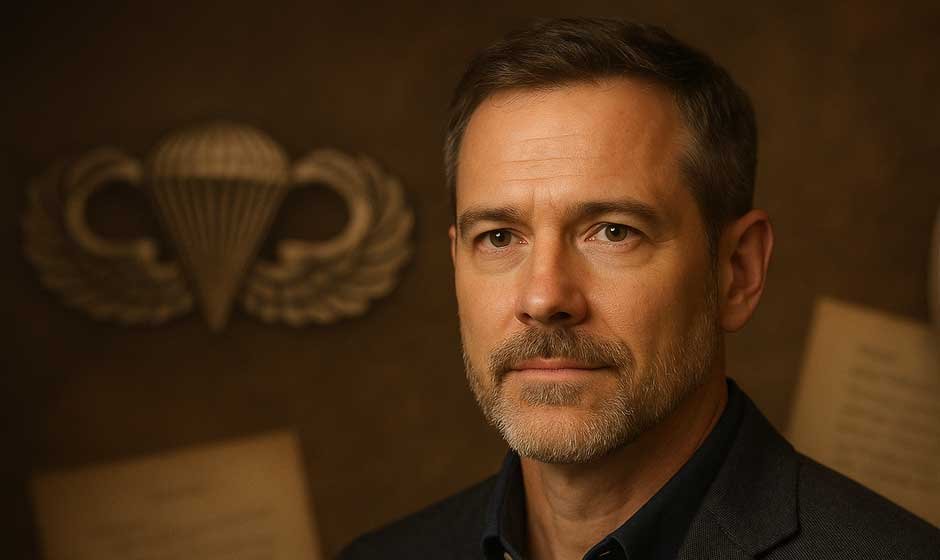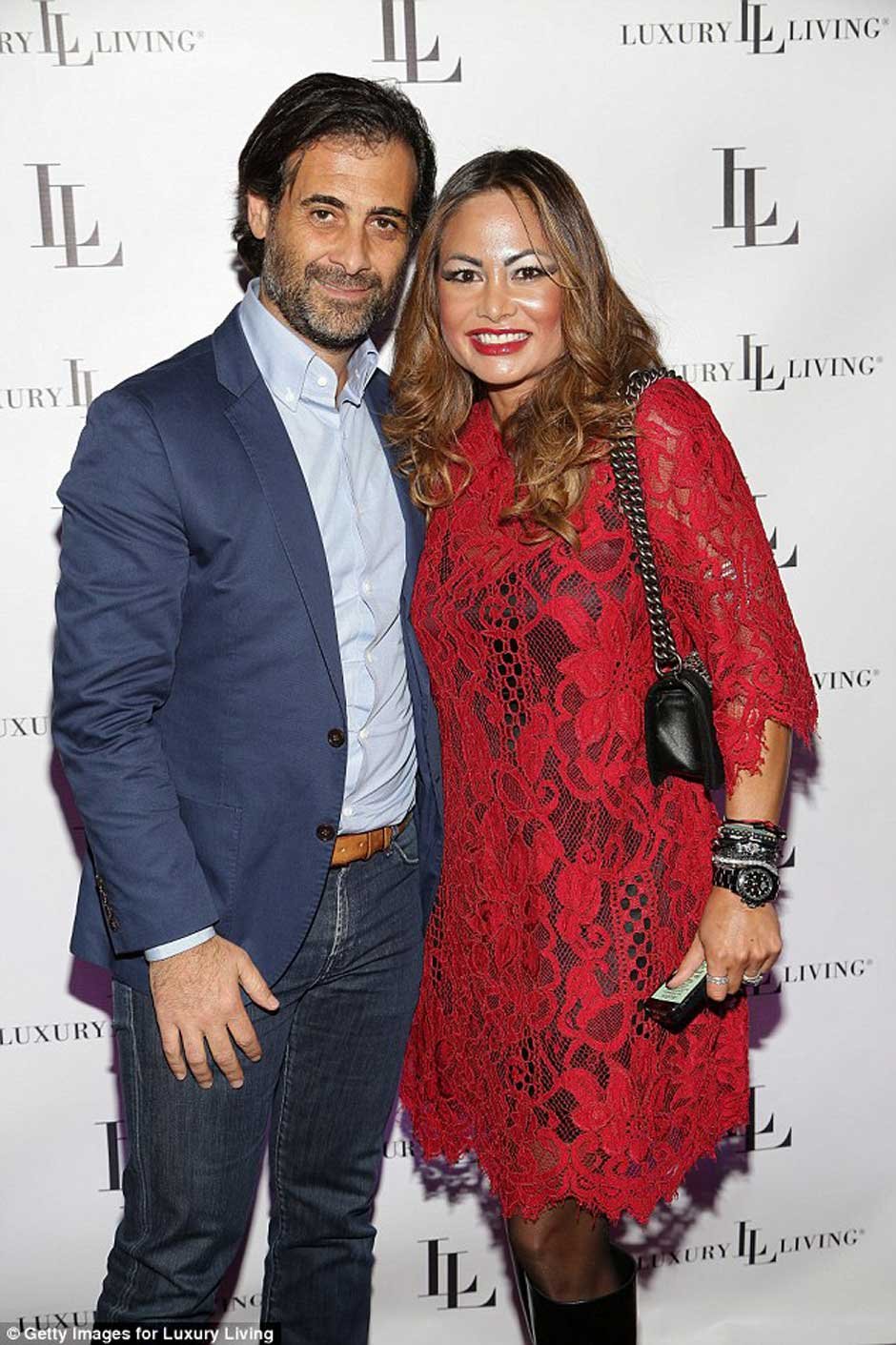Keith Jeffreys: From Green Beret to Award-Winning Screenwriter – A Veteran’s Journey in the Creative Arts

Most people wouldn’t expect a Green Beret to become an award-winning screenwriter, but Keith Jeffreys has proven that military precision and creative storytelling make a powerful combination. His remarkable transformation from Special Forces operator to Hollywood success story isn’t just inspiring—it’s reshaping how we think about veteran transitions and artistic potential.
Jeffreys didn’t just change careers; he revolutionized the conversation around veteran artists. From his early days with the 82nd Airborne Division to his current role leading the United States Veterans Artists Alliance, he’s demonstrated that the discipline and strategic thinking developed in military service can fuel extraordinary creative achievements. His screenwriting accolades, including recognition from the prestigious Nicholl Fellowship and Page Awards, prove that veteran voices have a vital place in entertainment.
Military Foundation – The Making of a Green Beret
At just 17, Keith Jeffreys made a decision that would define his character for life: he enlisted in the U.S. Army’s 82nd Airborne Division. Most teenagers are figuring out college plans, but Jeffreys was already committed to serving his country at the highest level.
The 82nd Airborne isn’t just any military unit—it’s home to America’s elite paratroopers, the “All American” division known for rapid deployment anywhere in the world. Choosing this path as a teenager shows the kind of determination and courage that would later drive Jeffreys’ success in Hollywood.
Just two years later, at 19, Jeffreys earned his way into even more exclusive territory: the Army’s 5th Special Forces Group (Airborne). Getting selected for the Green Berets is no small feat. These are the soldiers who handle the missions others can’t, operating in small teams where every member must perform flawlessly.
Jeffreys specialized as an Underwater Operations Qualified Light Weapons Specialist on an “A” Team. That’s military speak for someone who could handle complex underwater missions while managing advanced weapons systems—skills that require both physical toughness and mental sharpness. His designation “DETA/UWO 594” represents specialized underwater operations training that few soldiers ever receive.
Transition to Creative Arts – Finding a New Mission
Leaving the military after years of elite service isn’t easy for anyone, but for someone with Keith Jeffreys’ specialized background, the challenge was particularly complex. How do you translate underwater operations expertise into civilian success? The answer, it turns out, lies in recognizing that the core skills transfer beautifully.
Jeffreys discovered that storytelling and screenwriting offered the perfect outlet for his strategic mindset and attention to detail. The same planning abilities that made him effective in Special Forces operations proved invaluable when crafting compelling narratives. Both require understanding your mission, knowing your audience, and executing flawlessly under pressure.
Hollywood might seem like a world away from military service, but Jeffreys found unexpected parallels. The entertainment industry demands the same resilience that military training instills. When your screenplay gets rejected for the tenth time, that Green Beret persistence becomes your greatest asset.
What really set Jeffreys apart was his ability to channel military discipline into creative pursuits. While other aspiring screenwriters might give up after facing industry rejection, his Special Forces background had taught him that persistence and adaptation are the keys to mission success—whether that mission involves underwater operations or getting a script optioned.
Screenwriting Success and Industry Recognition
Keith Jeffreys didn’t just dabble in screenwriting—he conquered it. Specializing in science fiction and drama, he’s built a reputation for creating stories that blend technical precision with emotional depth. His military background gives his sci-fi work an authenticity that Hollywood often lacks, while his understanding of human resilience shines through in his dramatic pieces.
The breakthrough came in 2021 when his screenplay “DENALI” earned Quarter-Finalist recognition in the Nicholl Fellowships in Screenwriting. This isn’t just any competition—it’s run by the Academy of Motion Picture Arts and Sciences, the same organization behind the Oscars. Out of thousands of submissions from around the world, only a select few reach Quarter-Finalist status. For a veteran transitioning to screenwriting, this recognition was monumental.
But Jeffreys wasn’t done proving himself. In 2022, his screenplay “ELYSIAN PARK” became a Finalist in the Page Awards, another prestigious competition that industry professionals watch closely for emerging talent. Back-to-back recognition in major competitions doesn’t happen by accident—it signals a writer with serious skill and staying power.
His participation in Imagine Impact 2 in 2019 resulted in a Top 1% achievement, placing him among the elite participants in a program created by producer Brian Grazer and director Ron Howard. This intensive mentorship opportunity provided Jeffreys with direct access to Hollywood’s top creative minds, further validating his transition from military service to entertainment industry success.
The 2023 film “Translations,” which earned Jeffreys a special thanks credit, demonstrates his continued involvement in active production. With an impressive 8.8 rating on IMDb, the project showcases his ability to contribute meaningfully to successful films that resonate with audiences.
Founding USVAA – Empowering Veteran Artists
Perhaps Jeffreys’ most significant contribution to the veteran community came through his role in founding the United States Veterans Artists Alliance (USVAA) in 2004. This award-winning, multi-disciplinary non-profit organization has become a vital resource for veterans seeking to explore careers in the arts, humanities, and entertainment industry.
As Executive Director and Chairman of the Board, Jeffreys has guided USVAA’s mission to highlight the work of veterans in creative fields while also documenting the substantial contributions veterans have made to American cultural history since the Revolutionary War. This historical perspective provides important context for understanding the ongoing relationship between military service and artistic expression.
USVAA operates on the principle that veterans possess unique perspectives and skills that can enrich the creative community. The organization actively networks with veterans, artists, and supportive individuals and organizations to secure funding and support for individual artistic projects across multiple disciplines, including theater, film, television, visual arts, and various crafts.
The organization’s approach recognizes that veterans often face specific challenges in transitioning to creative careers. These may include unfamiliarity with industry networks, difficulty translating military experience into civilian terms, and the need for mentorship from established professionals who understand both military and creative backgrounds.
Under Jeffreys’ leadership, USVAA has emphasized diversity and inclusion as core values, recognizing that the creative community’s strength comes from embracing different perspectives and experiences. This philosophy extends beyond military service to encompass all aspects of identity and background.
Advocacy and Social Impact
Jeffreys has consistently used his platform to address critical issues facing the veteran community. Through USVAA and his individual advocacy work, he has focused attention on challenges including the transition from military to civilian life, education access, employment opportunities, and the effects of service-related injuries.
The organization specifically addresses the impacts of Post-Traumatic Stress Disorder (PTSD), Traumatic Brain Injury (TBI), and Military Sexual Trauma (MST), recognizing that these conditions can significantly affect veterans’ ability to pursue creative careers. By providing supportive environments and understanding communities, USVAA helps veterans navigate these challenges while pursuing artistic goals.
Homelessness among veterans represents another area where Jeffreys has directed attention and resources. The intersection of housing instability and creative pursuits presents unique challenges, and USVAA’s programs are designed to provide both practical support and artistic opportunities for veterans in various circumstances.
In 2018, Jeffreys received recognition as Veteran of the Year through Warner Bros.’ Valor program, acknowledging his contributions to both the entertainment industry and the veteran community. This recognition from a major studio demonstrates the industry’s appreciation for his dual role as creative professional and veteran advocate.
Media coverage of Jeffreys’ work, including features in publications like AT EASE: Mid Atlantic Military Life Magazine and television coverage by ABC7 Los Angeles, has helped raise awareness of veteran issues and the potential for creative careers among transitioning service members.
Publishing and Mentorship Through Onward Press
As publisher of Onward Press, USVAA’s publishing imprint, Jeffreys has created additional opportunities for veteran writers to see their work in print. This publishing platform serves multiple purposes: providing a venue for veteran voices, creating professional development opportunities, and building a body of literature that reflects veteran experiences.
The Veterans Writing Workshop programs that Jeffreys oversees bring together aspiring veteran writers with established professionals for intensive mentorship experiences. These workshops recognize that writing, like any craft, benefits from expert guidance and peer support.
Table-read workshops represent a particularly innovative approach to writer development. In these sessions, veteran participants present their work for evaluation by professional writers and industry professionals. This format provides immediate feedback while also creating networking opportunities that can lead to future collaborations or career advancement.
The mentorship model that Jeffreys has developed through these programs recognizes that veterans often benefit from guidance that addresses both creative and professional development. Understanding industry practices, building professional networks, and developing business skills are as important as honing writing craft for long-term success.
These programs operate on the principle that all USVAA services should be free to military veterans, removing financial barriers that might otherwise prevent participation. This commitment reflects Jeffreys’ understanding that economic challenges often accompany military transition and should not limit access to creative opportunities.
Legacy and Continuing Mission
Jeffreys’ vision extends beyond individual success stories to systemic change in how society recognizes and supports veteran contributions to the arts. His advocacy for National Veterans in the Arts and Humanities Day represents an effort to institutionalize recognition of veteran creativity at the national level.
His philosophy regarding veteran identity reflects a nuanced understanding of the transition process. As he has stated, the goal is to help veterans “retain the pride that you feel in being a veteran, but we don’t want you to have to feel like you have to be a ‘veteran’ for the rest of your life.” This perspective acknowledges that while military service provides valuable experience and identity, veterans should not be limited by others’ expectations or their own assumptions about post-service possibilities.
The continuing mission that Jeffreys has embraced involves demonstrating that veterans possess extraordinary talent and creativity that can benefit all of society. His work challenges stereotypes while creating practical pathways for veterans to explore and develop their artistic potential.
Through his example and his advocacy, Jeffreys has shown that the transition from military service to creative careers is not only possible but can result in exceptional achievement. His story serves as inspiration for other transitioning service members while also educating civilian communities about the diverse talents and perspectives that veterans bring to creative fields.
The impact of Jeffreys’ work extends far beyond individual career success. By creating institutions, programs, and opportunities that will continue to serve veterans long after his direct involvement, he has built a lasting legacy that will benefit future generations of veteran artists and the broader creative community that gains from their contributions.



